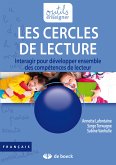The Philobiblon is a collection of essays concerning the acquisition, preservation, and organization of books written by the mediaeval bibliophile Richard de Bury shortly before his death in 1345. Written in Latin, as was the custom of the day, it is separated into twenty chapters, each covering a different topic relating to book collecting. According to one scholar, the Philobiblon is “one of the longest extant medieval texts on the subject of library management.” In it are several innovations such as the practices for circulation control among the students of the college, utilizing at times an open-stack rather than the dominant closed-stack system. Fifteenth century scholars cited it often. Thomas Kempis, the author of the devotional book The Imitation of Christ, borrowed a whole chapter of the Philobiblon for one of his works, and Mathaus Hummel read from it during the opening of the University of Freiburg. List of Chapters Prologue That the Treasure of Wisdom is chiefly contained in Books The degree of Affection that is properly due to Book What we are to think of the price in the buying of books The Complaint of Books against the Clergy already promoted The Complaint of Books against the Possessioners The Complaint of Books against the Mendicants The Complaint of Books against Wars Of the numerous Opportunities we have had of collecting a store of books How although we preferred the Works of the Ancients we have not condemned the Studies of the Moderns Of the Gradual Perfecting of Books Why we have preferred Books of Liberal Learning to Books of Law Why we have caused Books of Grammar to be so diligently prepared Why we have not wholly neglected the Fables of the Poets Who ought to be special Lovers of Books Of the advantages of the love of Books That it is meritorious to write new Books and to renew the old Of showing due Propriety in the Custody of Books Showeth that we have collected so great Store of Books for the common Benefit of Scholars and not only for our own Pleasure Of the Manner of lending all our Books to Students An Exhortation to Scholars to requite us by pious Prayers









